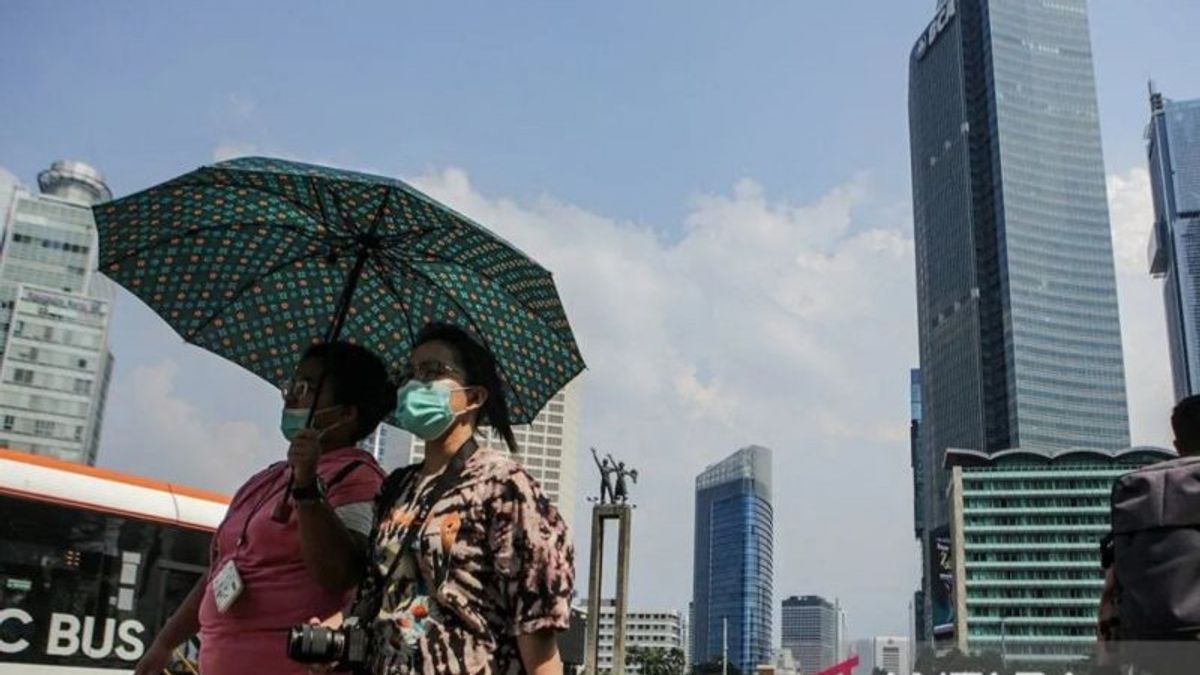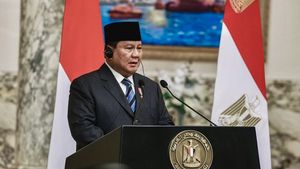JAKARTA - The Meteorology, Climatology and Geophysics Agency (BMKG) reminded that the temperature increase in urban areas in Indonesia is the largest in calculating the value of the global Land Surface Temperature (LST). This needs the attention of all parties.
Head of BMKG Dwikorita Karnawati explained that urban temperatures which were later mentioned (Urban Heat Island/UHI) were natural phenomena in the form of high urban temperature compared to rural areas.
"This phenomenon is triggered by several factors, including the complex geometric structure of the city, at least vegetation, and the effects of greenhouses. In addition, changes in land cover that are built into land have also exacerbated the occurrence of UHI," he said in a statement in Jakarta, Antara, Friday, June 27.
BMKG noted that in the last 30 years, the effect of UHI has been relatively strong, so that a number of big cities in Indonesia; such as Jakarta, Bogor, Depok, Tangerang, Bekasi, Medan, Semarang, Surabaya, Makassar, and Bandung are included in the 20 percent of cities with the largest Land Surface Temperature (LST) value.
Referring to the many studies, Semarang City recorded the highest LST value reaching 39.4 Celsius in 2019 and Surabaya City in 2021 showing the highest LST value in the city of Surabaya reaching 38.5 Celsius.
Dwikorita explained that it is possible that in the future this increase will continue to occur if it is not controlled, even in this case the World Meteorology Agency (WMO) has just stated that 2023 is recorded as the hottest year during instrumental observations.
Although not found in Indonesia, he said, in WMO records in 2023 there was a record new daily global temperature and there was a heat wave extreme disaster that hit various regions in Asia and Europe with an anomaly of global average temperature reaching 1.45 degrees Celsius above pre-industrial times.
That figure almost touched the agreed threshold in the 2015 Paris Agreement that the world must hold back the rate of global warming at 1.5 Celsius.
The former Chancellor of Gadjah Mada University (UGM) revealed that the global climate record that occurred in 2023 was not a random incident or a coincidence, but clear signs of a bigger and more worrying pattern, namely climate change that is increasingly real.
Therefore, BMKG specifically reminds that it is time for steps or joint movements to be carried out not only by the government, but also all components of the community, as well as the private sector, academics, media, non-governmental organizations, and so on including young Indonesians to mitigate the triggering factors for this temperature increase.
SEE ALSO:
The English, Chinese, Japanese, Arabic, and French versions are automatically generated by the AI. So there may still be inaccuracies in translating, please always see Indonesian as our main language. (system supported by DigitalSiber.id)
Most Popular Tags
#Prabowo Subianto #New Year #Mother's Day #nataru #NatalPopular
24 Desember 2024, 00:21
24 Desember 2024, 00:18
24 Desember 2024, 00:24


















